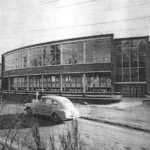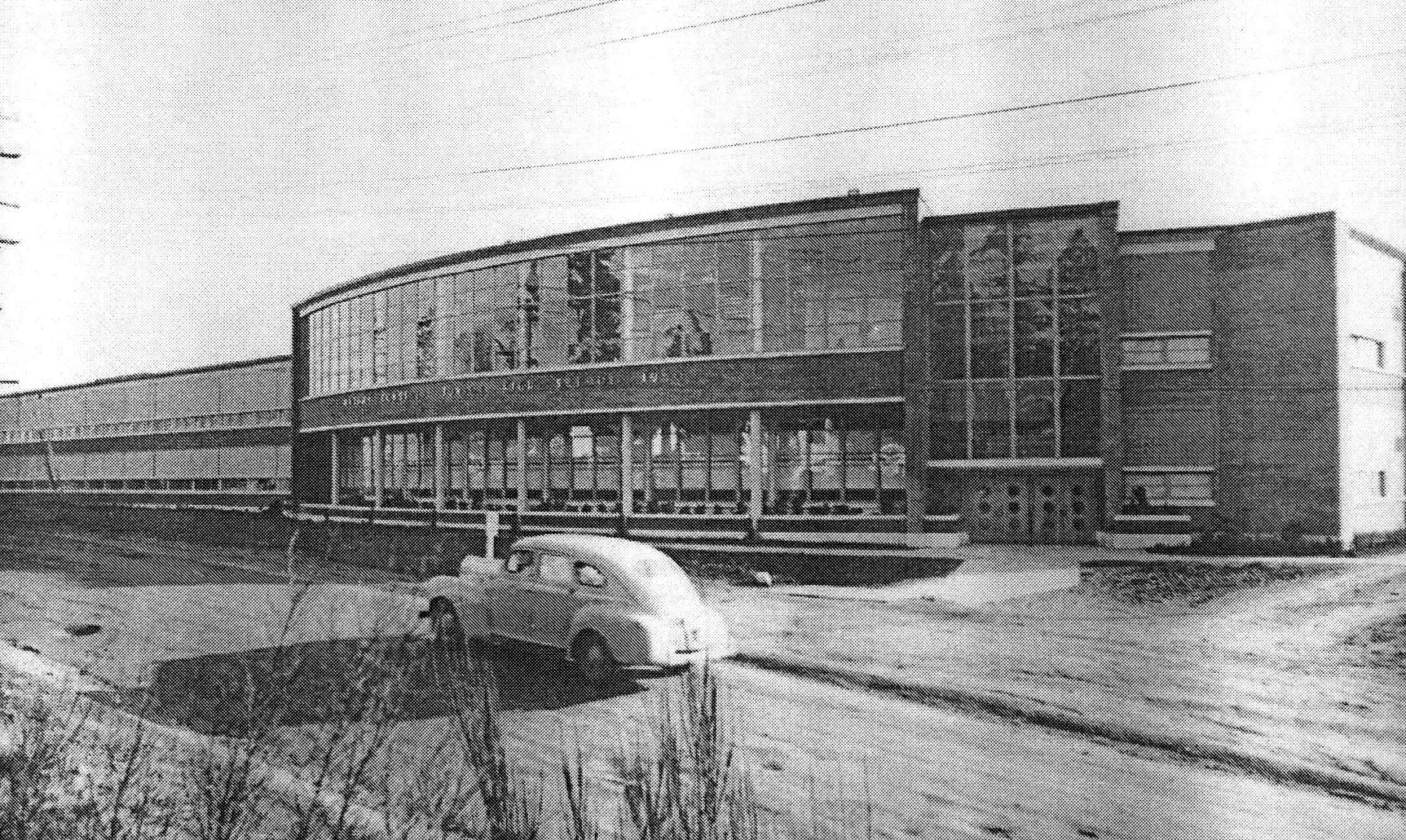Eckstein Through the Decades
Eckstein Through the Decades
1950s
791 students started the 1950-51 school year. Over the decade, the student population continued to grow, more than doubling to 1760 in the 1958-59 school year.
Students and staff received information through the Eckstein News. A student council was established and clubs were created that included T-squad, a Boys club, girls club, A-V-aiders to assist staff in their audio-visual program, ski club, and a dancing class. A robust PTSA held monthly meetings at the school that included guest speakers and student entertainment.
Because Eckstein offered classes of French, Spanish, German, and Latin it was the first junior high school in the district to have a language lab. The music and drama program offered students opportunities in band, orchestra, and drama. Honoring the school’s namesake, students participated in school-wide service programs that included donating toys, food and other gifts to needy Seattle Families. This focus of service would continue throughout the next seventy-five years.
1960s
In the 1960s, Eckstein’s student enrollment exploded, rising to a peak of 1,988 students for the 1960-61 school year and never dropping below 1,772 students.
In 1965, The Atlantic magazine published The Case for the Junior High School–The Nathan Eckstein School in Seattle. The article details Eckstein’s accelerated academic programs as well as the multitude of elective offerings, such as foreign languages, music, art, home economics, and industrial arts. At the time, Eckstein experimented with a rotating schedule where students could omit an academic subject each day on a rotating basis, gaining a free period for enrichment classes such as art appreciation, enriched reading, and typing.
Eckstein fielded sports teams that competed against other Seattle middle schools and brought back trophies. The school news was brought to students through the monthly newspaper now called NE. News. The music and drama programs blossomed with productions of Christmas is Coming, The Mikado, and Down the Mississippi, and students continued to focus on Nathan Eckstein’s dedication to service.
1970s
Eckstein started the 1970-71 school year with 1,671 students. This fell to only 925 students by the 1979-80 school year. In 1971, ninth graders moved to high school, and sixth graders moved into Eckstein, turning it from a junior high to a middle school. At this time the school adopted the roadrunner mascot and changed the newspaper name to the Eckstein Eye. The Deaf and Hard of Hearing program also was brought to Eckstein in 1971 and it joined other students to provide joy to sick students at Children’s Hospital.
The music program excelled, winning numerous first places at festivals around the Northwest. Students clamored to the various classes of band, orchestra, and choir.
Enrichment clubs and activities flourished and included Rocket Club, Chess Club, African Drum Ensemble, Sign Company, Girls Club and more.
In 1968 SPS set the goal of establishing quality, integrated education by 1971. In 1970, the Seattle School Board adopted a plan to desegregate Seattle Public Schools by establishing a number of multiracial middle schools, including Eckstein. The policy went into effect in September 1971.
1980s
Eckstein enrollment during the eighties fluctuated between 867 to a peak at the end of the decade of 1,185. Students excelled in the core classes of Language Arts, Math, History, and Science. Elective choices included foreign languages, woodshop, TV productions, art, PE, and of course music. The music program, with multiple band and orchestra offerings, also included guitar and choir. It continued its decades-long tradition of winning competitions at music festivals.
Students and staff received their Eckstein news through the Roadrunner and continued with the dedication to service with food drives and by providing turkey dinners to Eckstein families in need.
Over the decade, students had the opportunity to participate in a wide range of enrichment activities such as Sign Company, Rocket Club, Motocross, Mime Club, Juggling Club, and many more.
1990s
Eckstein’s enrollment numbers rose again, topping out at 1,258 for the 1999-2000 school year. The 1993-94 school year saw the first student-produced yearbook, a visit from basketball legend Magic Johnson, and Eckstein hosted the U.S. Secretary of Education and the fifth Annual State of America Education address.
Mr. Escobedo joined the staff as the new band director in 1994 and continued its award-winning music program. In the fall of 1994, teacher Rose Palmer worked with students to plant trees in front of the school. Then in the summer of 1995, Ms. Palmer, with the help of volunteers and students, built the garden, beautifying the area outside of the lunchroom. A levy in 1998 brought computer technology into the classroom. At the end of the decade, Eckstein saw the girls’ varsity soccer team win the metro championship and the end of Seattle Public School’s desegregation program.
2000s
Eckstein celebrated its fiftieth anniversary in 2000. Enrollment remained strong starting the decade with 1273 students and ending with 1213, thus the extensive portable system in the back of the school remained. Because of the rigorous curriculum, students continued to succeed academically at Eckstein.
The music program flourished as Eckstein band and orchestra continued raking in music festival awards. Technology continued to be updated with more computers available to students in classrooms and the library.
Eckstein fielded teams in soccer, basketball, volleyball, Ultimate Frisbee and track. Eckstein students, along with the nation, mourned the loss of lives from the tragedy of September 11, 2001.
2010s
Eckstein’s enrollment dipped in the 2010s, starting at a high of 1,273, dropping to 881 in the 2013-2014 school year, and ending the decade with 1,118 students. The strong academic program continued to foster educational growth among all of the students. Technology became a mandatory class for all sixth graders. In 2014 Eckstein lost the Deaf and Hard of Hearing program when it moved to TOPS.
WEB – Where Everybody Belongs – began in the fall of 2011, welcoming new sixth graders to the school.
The decade saw many of the athletic teams win metro championships, including the girls’ basketball team winning the metro championship in 2016.
Also, in 2016, the staff played an April Fool’s joke on the students, claiming that the following year there would be a dress code. The students were not amused. However, the students were amused and delighted when Eckstein’s new Eagle mascot appeared at pep assemblies and sports games.
Students and staff ended the decade with no idea of what the beginning of 2020 would hold.
2020s
Because of the pandemic and rising cases of COVID in Seattle, SPS closed all school buildings and sent students home on March 11, 2020. Students didn’t have SPS laptops and SPS scrambled to figure out how to keep the learning going while students were at home. That changed in the fall of 2020. Remote learning began in earnest as every student was issued a district laptop and teachers pivoted to the new way of teaching via Teams meetings. In the spring of 2021, after vaccines were available to staff, students came back into the building parttime for what was called a hybrid learning schedule. Everyone was masked and social distancing was implemented.
The 2021-22 school was challenging for staff and students. Though all students were back in the building, they still needed to wear masks at all times and practice social distancing. SPS requested the staff’s help with informing families of possible exposures to COVID, which became a daily endeavor. In January of 2022, COVID infections among staff were rising and multiple classes were taught in the auditorium due to staff and substitute shortages.
A slow reemergence into normalcy began in the fall of 2022. Masks were no longer mandatory and COVID infections had dropped. Middle school sports and field trips resumed. Social distancing mandates were removed and school began to feel like it did before the pandemic.
The 2020s were filled with achievements in both music and sports. The music program received multiple awards from festivals and Basketball, Ultimate Frisbee, and Soccer saw championships.
By the 2024-25 school year, the anxiety over the pandemic had lifted. Students and staff were mastering the use of technology in the classrooms. Every student continued to be issued a laptop. The Eagle News was now a weekly video produced by students under the leadership of school counselor, Mr. Manzo.



















